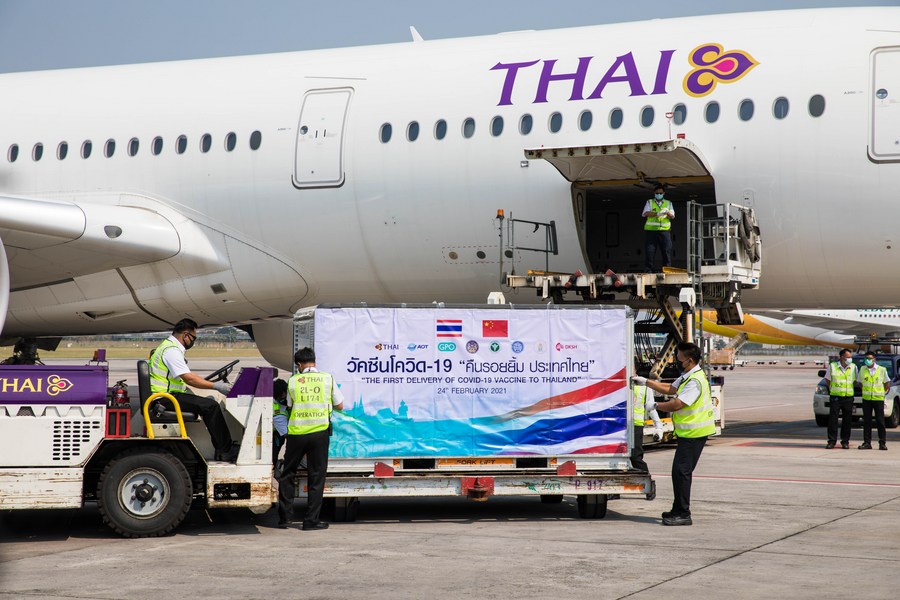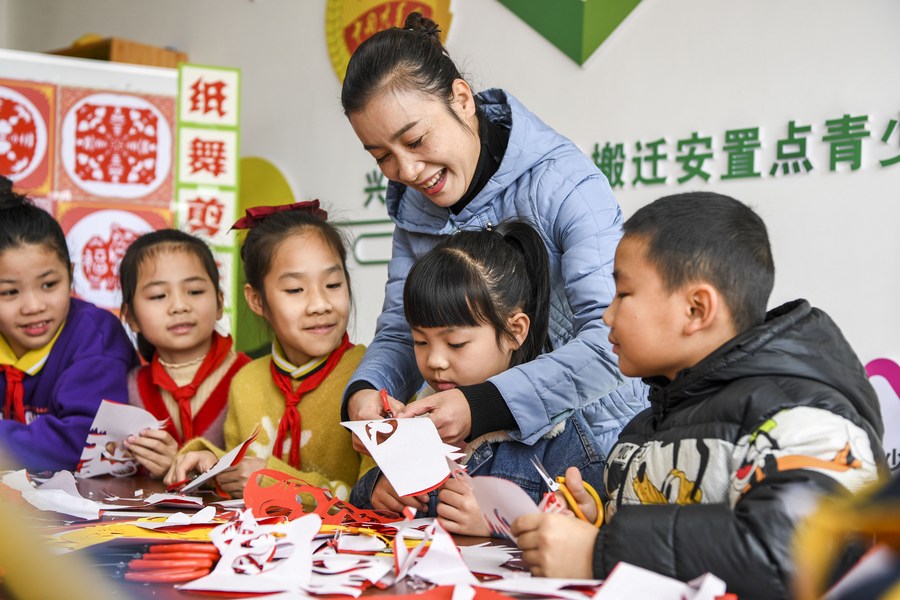Interview: China's Global Development Initiative supports sustainable development goals, says former Thai PM

Aerial photo shows an electric multiple unit (EMU) train of the China-Laos Railway crossing a bridge over the Yuanjiang River in southwest China's Yunnan Province, Dec. 3, 2021. (Xinhua/Wang Guansen)
The GDI, the Belt and Road Initiative, and China's calling for building a community with a shared future for mankind could play a positive role in promoting common development and multilateralism, said former Thai Prime Minister Abhisit Vejjajiva.
BANGKOK, Sept. 18 (Xinhua) -- The China-proposed Global Development Initiative (GDI) is aimed at helping countries realize the United Nations Sustainable Development Goals by 2030 through international cooperation, and should be supported by all countries, said former Thai Prime Minister Abhisit Vejjajiva.
"The situation now facing the world is much more challenging and complex" than the time when he was prime minister, from 2008 to 2011, during which the world was grappling with the aftermaths of the 2008 global financial crisis, Abhisit said in a recent interview with Xinhua.
"If the problem is essentially from the financial sector, we know how to deal with it, though some of the policies that we need to adopt might be painful at a particular time," he said.

The first batch of COVID-19 vaccines arrive at Suvarnabhumi Airport in Bangkok, Thailand, Feb. 24, 2021. (Xinhua/Zhang Keren)
However, the COVID-19 pandemic is a public health crisis, disruptive to people's lives and supply chains, which is much more difficult to deal with, he said, adding that on top of the pandemic there were challenges from the Ukraine crisis, tensions among major powers, de-globalization and protectionism.
To tackle these global challenges, he said, "it would be best if we have better coordination and cooperation between countries."
Abhisit said the GDI, the Belt and Road Initiative, and China's calling for building a community with a shared future for mankind could play a positive role in promoting common development and multilateralism.
China has been an engine for both regional and global economies for years. "With its increased economic significance, it's good for the country to play its role at the global level, supporting multilateralism and the development goals of international organizations," he said.
Impressed by China's anti-poverty achievements, Abhisit said China has lifted an unprecedented number of people out of poverty and its approach and experience have been inspiring other countries, including Thailand.

Children learn paper-cutting at a relocation site for poverty alleviation in Xingye County, south China's Guangxi Zhuang Autonomous Region, Jan. 18, 2022. (Xinhua/Cao Yiming)
When Chinese President Xi Jinping put forward the GDI at the general debate of the 76th session of the United Nations General Assembly in September, 2021, he called for staying committed to development as a priority and to a people-centered approach.
Poverty reduction is "not just about getting the economy to grow, but to make sure that the growth is pro-poor and economic policies target towards poverty eradication as well," Abhisit said.
To eradicate absolute poverty, China has set a goal, made detailed plans and achieved them through hard work, he said. "These are lessons that could be learned."
"The GDI is very much aimed at supporting the sustainable development goals, which should be supported by all countries," he said.


